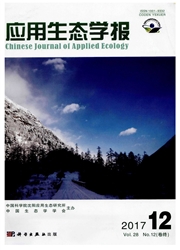

 中文摘要:
中文摘要:
全球变化是近几十年世界广泛关注的热点之一.土地利用变化和化石能源消耗已引起如温室气体增多、气温升高、降水格局改变等多种形式的变化.这些变化对整个生态系统过程,特别是陆地生态系统碳氮循环过程有着深远影响.自20世纪70年代以来,世界各地已开展大量野外控制试验用以模拟单因子和多因子气候变化的影响,这些研究对解释生态系统响应和适应全球变化的内在机制提供了重要的基础.本文梳理了全球变化控制试验的发展历程,介绍了不同因子模拟控制试验的研究概况及不足之处,重点阐述CO_2倍增、增温、降水和模拟氮沉降等全球变化控制试验在土壤微生物生态学研究中的应用,探析土壤微生物及其介导的生态学过程对全球变化的响应和反馈,并对未来野外控制试验需关注的问题和研究方向进行了展望,为认识气候变化对地下生态系统的影响提供参考.
 英文摘要:
英文摘要:
In recent decades, global climate change is one of the main concerns around the world. Land use change and the high demand for fossil fuel have caused severe consequences of climate change, such as elevated greenhouse gases, warming, and altering precipitation pattern. These combined factors have substantial impacts on ecosystem processes, especially carbon and nitrogen cycles in terrestrial ecosystems. Since the 1970s, a series of field manipulative experiments had been set up to stimulate the influences of monofactorial and/or multifactorial climate changes, improving our understanding of ecosystem response and feedback to global change. In this review, we summarized the development history of global change experiments, and discussed the main issues of using field manipulative experiments in simulating global change. The application of muhifactorial experiments, such as CO2 enrichment, warming, precipitation and nitrogen deposition, were highlighted in the research of soil microbial ecology. Moreover, the response and feedback of soil biota as well as the biogeochemical processes that they mediated were further addressed. We also proposed the prospects of their application in global change research to explore the impact of global change on terrestrial ecosystems.
 同期刊论文项目
同期刊论文项目
 同项目期刊论文
同项目期刊论文
 期刊信息
期刊信息
